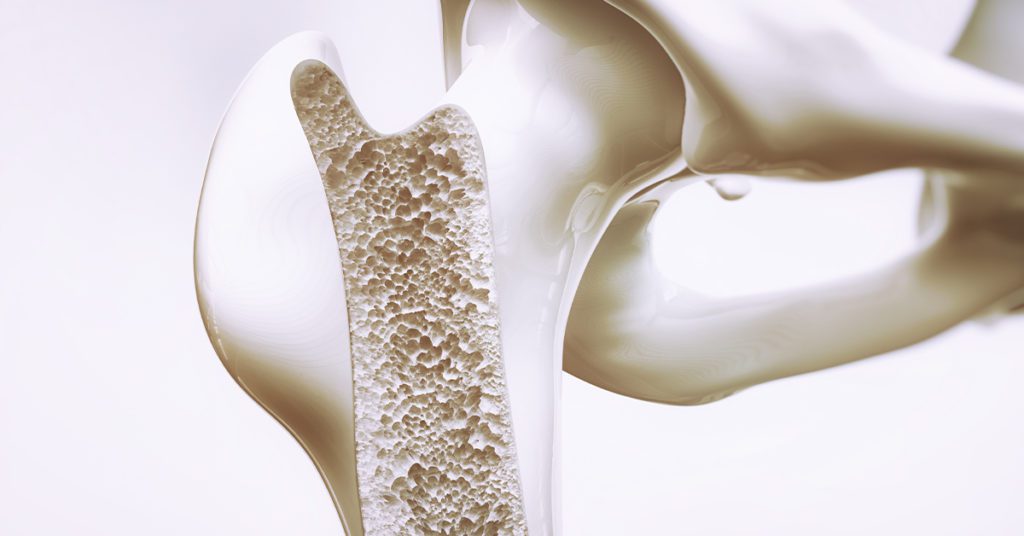What Does a Bone Density Scan Reveal?
A DEXA (dual-energy X-ray absorptiometry) scan, or bone density scan, uses low-dose X-rays to determine your bone mass. These imaging scans measure the strength and thickness of your bones as you age. DEXA scans help doctors diagnose two conditions:
- Osteopenia—lower-than-average bone density
- Osteoporosis—bone density so low it can result in a fracture
May is Women’s Health Month, and since women often have greater risk of bone loss, there’s no better time to discuss a bone density test with your doctor.
Why a bone density scan matters
Osteoporosis is a bone disease that causes bones to lose mass and density. It also changes the structure of your bones, resulting in less overall bone strength with increased risk of fractures. Osteoporosis rarely has symptoms. It occurs in men and women of all races, and risk for developing the condition increases as you age.
Osteopenia develops prior to the onset of osteoporosis. Like osteoporosis, osteopenia rarely has symptoms. Both conditions are often diagnosed after a fracture has occurred.
Osteoporosis risk factors
Since a majority of people have some risk for bone loss throughout their lifetime, it’s critical to receive a bone density scan as you age. Doctors may order a bone density scan if you meet the following risk factors:
- Age: Older adults have higher risk for bone loss
- Family history of osteoporosis
- Loss of half an inch in height or more in a calendar year
- Low body weight
- Medications with osteoporosis risk
- One or more bone fractures after age 50
- Poor diet
- Race: Non-Hispanic white or Asian
With the results of a bone density scan, your doctor can tell you whether you need lifestyle changes and/or treatments to slow bone loss. Doctors also use bone density scans to assess whether bone health treatments are working.
Touchstone Medical Imaging’s compassionate technologists perform affordable DEXA scans in multiple convenient centers near you at up to 60% less than hospital imaging. After receiving a doctor’s order for a bone density scan, find the Touchstone Medical Imaging center nearest to you.
Can DEXA scans support cancer and arthritis treatment?
A DEXA scan is only used to detect osteoporosis or osteopenia; doctors don’t use them to diagnose other conditions. Though bone density scans can’t detect cancer or arthritis, they may still be recommended during treatment for these conditions.
Some types of cancer treatment or medication, especially for childhood cancer, may lead to bone loss. Doctors use bone density scans to monitor the effects of these treatments on your bone mass throughout cancer care.
Inflammatory forms of arthritis, such as rheumatoid arthritis, impact bone health. Glucocorticoid medications used to treat rheumatoid arthritis may also cause bone loss. Bone density scans help doctors track the effectiveness of arthritis treatments, as well as manage any potential bone loss. However, to diagnose various forms of arthritis, your doctor may request other imaging studies, such as an MRI or CT scan.
What to expect during a bone density scan
DEXA scans are painless and noninvasive. Our expert technologists perform these scans in a compassionate environment.
Before your scan:
- Avoid scheduling a scan at the same time you’ve had imaging using contrast material, such as barium
- Inform your doctor and the imaging team if you are pregnant
- Stop any calcium supplements the day before your scan
The day of your scan:
- Dress in loose, comfortable clothing without zippers or metal
- Leave jewelry at home
You’ll lie on a table positioned between an X-ray generator and a detector. The detector moves slowly over your hips and spine. The scan should take no more than 30 minutes.
Touchstone Medical Imaging’s fellowship-trained, subspecialized radiologists will interpret the results of your bone density scan for your doctor. Your doctor will follow up with recommendations for maintaining your bone health.
It’s time to make your bone health a priority. Touchstone Medical Imaging offers DEXA scans at multiple centers, often with same-day and next-day appointment options. Find the Touchstone Medical Imaging center closest to you, then, with your doctor’s referral, call to schedule an appointment.

